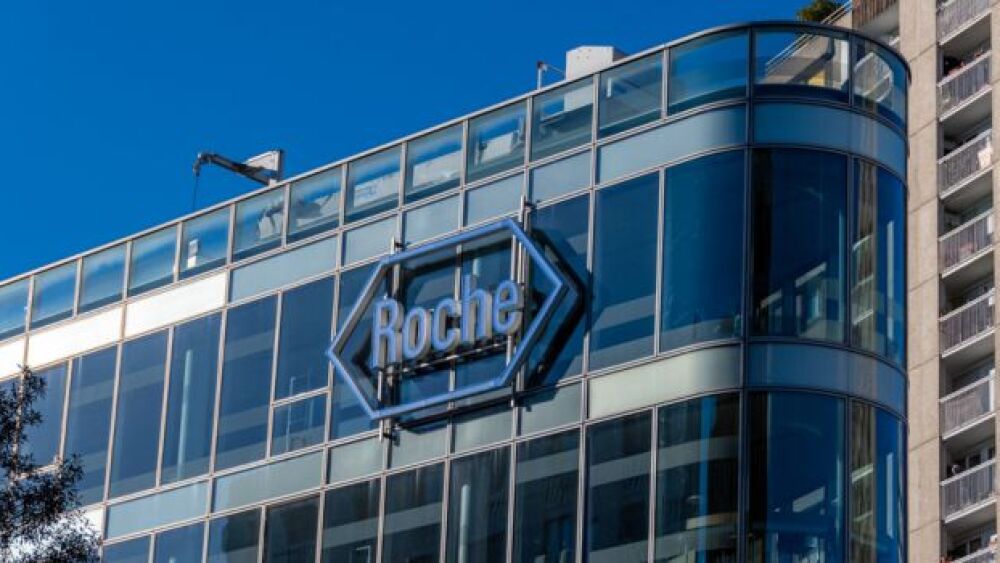-- Matthew Jarpe Promoted to Vice President of Research and Development --
BOSTON--(BUSINESS WIRE)--Regenacy Pharmaceuticals, LLC, a clinical-stage biopharmaceutical company that is regenerating biological function by selective protein acetylation, today announced the presentation of preclinical data supporting the use of selective inhibition of histone deacetylase 1 and 2 (HDAC 1,2) as a potential treatment approach for Alzheimer’s Disease at the Alzheimer’s Association International Conference (AAIC), being held July 16-20, 2017, in London. Matthew Jarpe, Ph.D., recently promoted to Vice President of Research and Development at Regenacy, discussed the results in an oral presentation titled “A Highly Brain Penetrant HDAC1,2 Inhibitor (RCY-1305) Improves Cognitive Function in Mouse Models of Alzheimer’s Disease” during the session “Preclinical: Basic Therapeutics - Novel Approaches To Treating Disease” on Wednesday, July 19, 2017 from 4:15pm-5:45pm local time.
HDAC activity has been implicated in the underlying disease processes leading to cognitive loss in Alzheimer’s Disease (AD) (Guan et al, 2009; Graff et al, 2012). In particular, HDAC2 activity is elevated in brains of AD patients, and decreasing HDAC2 expression by knock out or knock down improves cognitive function in mice transgenic for familial AD genes. Regenacy scientists used RCY-1305 as a tool compound in two mouse models of AD to explore the mechanism of HDAC inhibition in synaptic plasticity and neurodegeneration. The studies showed that chemical inhibition of HDAC1 and 2 in the brain improved performance in spatial learning tasks in normal and cognitively impaired mice.
“We found that after two days of oral dosing, RCY-1305 successfully resulted in HDAC1,2 inhibition in the brains of mice and increased the transcription of genes associated with synaptic plasticity,” commented Dr. Jarpe. “Both normal and cognitively impaired mice demonstrated improved performance of special learning tasks after four weeks of dosing. These results suggest that HDAC1,2 inhibition is a promising area of research to develop potential therapeutics for AD and other diseases in which cognition is impaired.”
Prior to his promotion to Vice President of Research and Development, Matt Jarpe served as an Associate Vice President of Biology at Regenacy. He previously served as Director, then Associate Vice President of Biology at Acetylon Pharmaceuticals where he led the development of highly selective inhibitors for HDAC6 as well as HDAC1 and 2 in several non-oncology disease targets. Prior to joining Acetylon, Matt worked at Biogen as a Senior Scientist and at Surface Logix as an Associate Director of Biology. He received his Ph.D. from Johns Hopkins and completed his postdoctoral training at National Jewish Medical Center.
“Matt was one of the first major hires at Acetylon and played the pivotal role in the application of HDAC inhibitors in several non-oncology areas. His leadership in developing academic collaborations through our open source approach lead directly to the scientific basis for Regenacy,” said Simon Jones, Ph.D., Regenacy’s President and Chief Executive Officer. “We look forward to Matt’s continued leadership at Regenacy. The exciting work he presented today at AAIC is just one example of how he is continuing to grow the body of data supporting the use of HDAC inhibition for a wide variety of diseases, particularly in the neurological area.”
About Selective HDAC Inhibition
Histone deacetylases (HDACs) comprise a family of 18 related enzymes found in most human cells, 11 of which utilize zinc atoms to catalyze the removal of acetyl groups from intracellular proteins. By this function, HDACs can induce structural changes in the DNA-histone complex to result in altered gene expression and protein synthesis. Inappropriate deacetylation can disrupt these processes and contribute to a wide range of diseases, whereas regeneration of acetylation selectively causes apoptosis (cell death) in cancer cells and also induces favorable immunomodulatory effects. Currently available HDAC drugs non-selectively affect the expression of numerous other genes in normal cells as well as disease-causing cells, which can result in side effects such as gastrointestinal dysfunction, lowered blood platelet levels and risk of hemorrhage, and profound fatigue as well as potential for significant cardiac toxicity. Selective inhibition of HDACs is anticipated to reduce or eliminate these often-severe side effects associated with non-selective HDAC inhibition and to enable the development of optimized treatment regimens, including maximally effective combination drug therapies.
About Regenacy
Regenacy Pharmaceuticals, LLC is a clinical-stage biopharmaceutical company regenerating biological function by protein acetylation for the treatment of peripheral neuropathies, ciliopathic/polycystic diseases, hemoglobinopathies, cognitive disorders and oncology indications. The company’s selective inhibition technology provides superior safety profiles and potential enhanced efficacy compared to non-selective HDAC inhibitors. Regenacy’s programs selectively inhibit histone deacetylase 6 (HDAC6) to restore normal intracellular protein and organelle transport in diabetic and other peripheral neuropathies and in ciliopathic/polycystic diseases, and selectively inhibit HDACs 1 and 2 to restore oxygen transport in orphan blood disorders such as sickle cell disease and beta-thalassemia, regenerate normal cognitive function in patients with psychiatric disorders, and restore normal bone marrow function through differentiation of acute myeloid leukemia (AML) cells. www.regenacy.com
Contacts
Regenacy:
John Rocha, 617-415-5030
VP Finance & Administration, Acting CFO
or
Media:
MacDougall Biomedical Communications
Kari Watson, 781-235-3060
kwatson@macbiocom.com




